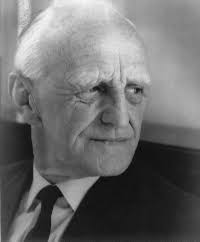March 19, 2009… one of the fraudster’s employees tells Lucinda Franks that the supposedly legitimate brokerage operations were in fact just money-losing fronts for the fraudster’s scheme.
… An employee of Bernard Madoff’s brokerage operations, which were described by the fraudster in his plea agreement as being “successful and profitable,” has told The Daily Beast that they were in fact money losers that acted as a front for his Ponzi scheme.
He said that these businesses, the proprietary and market-making arms on the 18th and 19th floors of Madoff Securities, were designed to lure investors in, especially highly placed figures in society, and to fool the SEC into thinking that he had a large and impressive galaxy of businesses. But behind the façade, these businesses were a shambles. They were excessively staffed with grossly overpaid people, and run with marked inefficiency, he said…
His description of how the legitimate arms of Madoff Securities were run sounds like a skit out of Monty Python. “The three managers who ran parts of the businesses were getting $500,000 to $750,000 a year and they didn’t even know anything about modern computerized trading,” the employee said. They knew only the antiquated methods of talking to clients and trading in the stock market by phone. They mostly socialized, read the news. They would have been unemployable on the outside”…
The firm’s odd way of being run was chalked up to Bernie’s quirkiness. “We just thought he was a brilliant eccentric man.” The 17th floor, for instance, to the shock of the employee, was messy. Papers strewn on desks, people in jeans, a sense of organized chaos.
“Yet take the 18th and 19th floors: Bernie was obsessive compulsive about the floors where the legitimate businesses were,” he said. “Everything had to be black. The computers, the tables, even the picture frames. If he saw a kid’s picture in a silver frame, for instance, he would order the offender to get a black frame. If you had a jacket over the back of your chair, he would take it off. He went down the row of windows and made sure that the slats were all at the exact same angle. You couldn’t have any paper on your desk“…
 David Winnicott was a pioneer who studied the child’s developing personality as a function of childhood interpersonal relationships. One of his ideas was based on the style of infant feeding. Some parents feed the baby "on demand." They wait for the child’s cry [that "I’m hungry!" cry all parents know]. Others feed the child on a fixed schedule ["He’s crying, but it’s not time yet"]. In essence, the former method is responsive to the child’s communication and the second is an expectant environment – asking the child to adapt to the world. In a real world, most parents operate somewhere in-between depending on the circumstances.
David Winnicott was a pioneer who studied the child’s developing personality as a function of childhood interpersonal relationships. One of his ideas was based on the style of infant feeding. Some parents feed the baby "on demand." They wait for the child’s cry [that "I’m hungry!" cry all parents know]. Others feed the child on a fixed schedule ["He’s crying, but it’s not time yet"]. In essence, the former method is responsive to the child’s communication and the second is an expectant environment – asking the child to adapt to the world. In a real world, most parents operate somewhere in-between depending on the circumstances.
But Winnicot’s distinction does define two broad ways children are raised. The environment leaning into the child versus the child adapting to the parent’s needs and wishes. Winnicott hypothesized that this had a dramatic impact on the child’s personality. The child raised in a responsive parental environment learns to communicate and experience needs. The personality develops in close relationship with inner experience and in dialog with others.
Children raised in an expectant environment don’t expect much from others. They develop a "false self" – public personality – adapting to the expectations of others – "people pleasers" in modern parlance. Their "true self," the self more in touch with their own inner experience is vague and concealed. It wasn’t responded to in early life, so it must be "bad." In adulthood, such people do well with others, responding to cues from the outside, but feel "un-known" as their "true self" is shamefully hidden, and constantly frustrated. This is often accompanied by a feeling of being an imposter [The Imposter Syndrome]. They may know many people, but are known by very few if any, because they don’t think others want to know what’s "inside" and they often resent others for not knowing them [even though they haven’t shown themselves to be known]. They are actors in most of their interactions with people.
Everything I read about Bernie Madoff fits this paradigm. His persona, his trappings, his monthly earnings, his business facade were all designed to please. Yet his wife thought better of a surprise party, as Bernie was so private and didn’t like to be known. And the 17th floor and what went on there seemed to represent his "true self" – messy, antiquated, corrupt, unruly. The inner self of such people is often a compendium of unmet needs and frustrations, but for Bernie, it had become a cesspool of unbridled greed. His outward affable personality hid an unfeeling, disconnected, greedy conman who took from others – unmoved by his effect on their lives.
Sorry, the comment form is closed at this time.